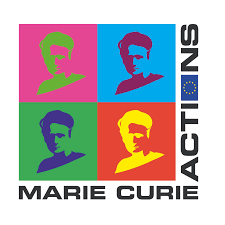Qualifications
Applicants should have a PhD in a discipline in the humanities by the time of application, or at least strong assurance that they will obtain the PhD by August 2019. Candidates should be fluent in English and have strong skills in other languages appropriate to their research topics.
Research profile
Up to twelve positions will be filled. Each candidate should propose an original, innovative research project on an important aspect of the role played by the Qur’an in Medieval and Early Modern European culture. The following is a list of possible broad themes, but in no ways should be seen as restrictive. All innovative research proposals are welcome, as long as they clearly fit the themes and structure of the EuQu project. We also welcome proposals that apply digital technologies such as mapping, textual analysis, visualization, or the semantic web to their topic. Candidates should clearly situate their proposed research in the context of the state of the art and should describe some of the sources they propose to work on.
- Synthetic comparison of translation strategies and ideologies of language study and translation between early modern polemical works
- The use that European scholars made of Muslim exegetical literature in order to understand the Qur’an.
- Translations of the Qur’an written before 1800 (in Latin and in various European vernaculars)
- Collecting the Qur’an (manuscripts and printed editions)
- The Politics and Economies of the European Qur’an (including theological and political obstacles that editions and translations of the European Qur’an faced)
- Polemical responses to the Qur’an
- The Printing of Arabic in Europe: The Qur’an and Islamic Texts
- A History of Qur’an Manuscripts in Europe
- The Qur’an in European literature and thought
- The Qur’an in Central & Eastern Europe
- The Qur’an in European Jewish culture and scholarship
- Colonial Expansion and the European Qur’an
- The Qur’an and European Legal and Political Thinking
Responsibilities of the researchers
Each post-doctoral researcher will propose an innovative research project on some aspect of the place of the Qur’an in European Culture between the twelfth and early nineteenth centuries. Depending on the specific research topic, responsibilities may include
- Bibliographical research:
- Identifying full and partial translations of the Qur’an
- Identifying texts of diverse types that engage with the Qur’an
- Identifying other material of interest to EuQu
- Database management:
- Writing and editing entries (in English) on manuscripts and printed editions of the Qur’an (in Arabic or in translation)
- Writing and editing entries (in English) on other texts dealing with the Qur’an
- Writing prosopographical entries on owners, editors and publishers of these manuscripts and books
- Identifying specialists in the field and inviting them to contribute to the database
- Participating in regular team meetings (including periodic seminars and workshops), at the EuQu partner institutions and in their organization
- Publication: each candidate will propose contributions to one or more of the collective volumes listed in the EuQu project description. S/he should also propose a monograph or article stemming from his or her own research.
Conditions of employment
The researcher will be hired on a one-year renewable contract employed by one of the EuQu institutional partners, for a total maximum of four years of employment. The date of the beginning of the contract will be negotiated on hiring: it will be no earlier than September 1st 2019. The researcher will be expected to reside in the city of employment for the period of employment and will be provided with office space. The researcher will travel frequently for conferences, workshops and research stays with partner institutions in Europe.
Application procedures
Applicants should send an application, consisting of a letter of application, a project description, a curriculum vitae, and names of three references (with titles and e-mail addresses). In the letter of application, candidates should specify which of the EuQu partner institutions they would prefer to be affiliated with, in order of preference: The Université de Nantes, the Consejo Superior de Investigaciones Científicas, Università di Napoli l’Orientale, the University of Kent or the University of Amersterdam. The project description (5 pages maximum) should outline how the candidate’s previous research is germane to the themes of EuQu and how the candidate would contribute to the EuQu project, giving specific examples of material that s/he would integrate into the database and a tentative description of his/her contribution to one of the planned collective volumes. Before writing the project description, candidates should carefully read the full description of the EuQu project available HERE.
All documents should be sent in PDF format to euqu@cchs.csic.es by April 1st, 2019.
Selected applicants will be interviewed 21-23 May 2019. The interviews will be conducted by EuQu’s four principal investigators. Applicants will be interviewed via videoconference. Those candidates who prefer to be interviewed in person may come to Madrid for interviews, but no travel expenses will be paid to interviewees. Fuller details about interviews will be sent to chosen candidates before May 1st. Applicants will subsequently be informed of the results of their application by the end of May.
Contact and information : euqu@cchs.csic.es




